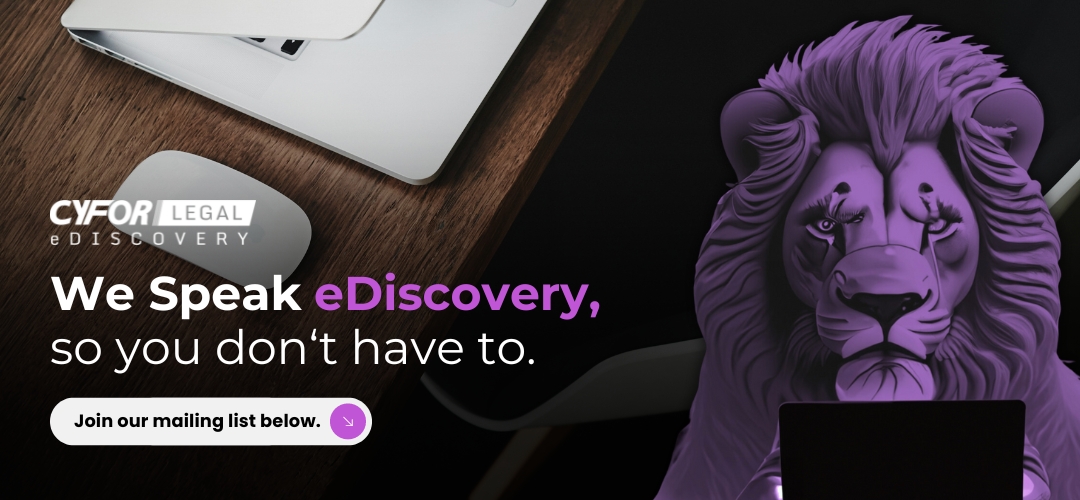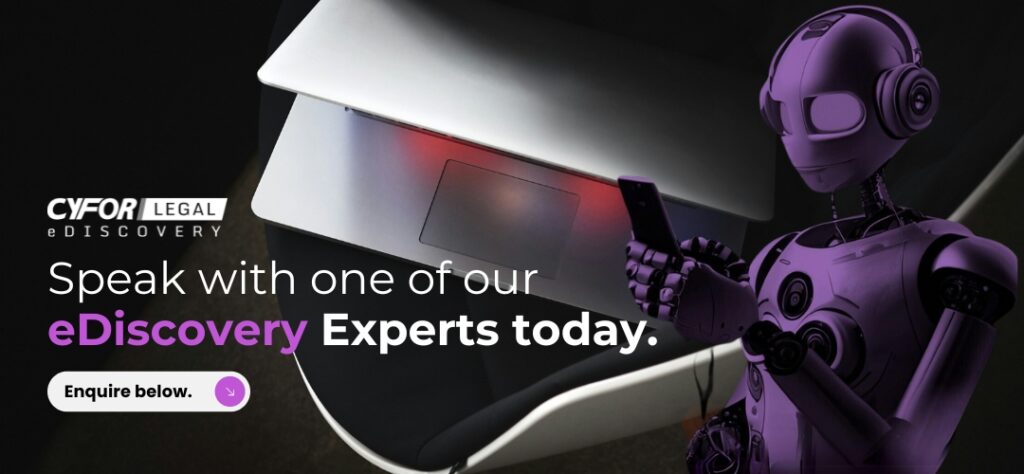It is crucial for solicitors to have only relevant data relating to their case for analysis. We ensure that only relevant documents are being analysed by reducing data volumes during eDiscovery in preparation for eDisclosure.
The eDiscovery process can produce huge volumes of data, also known as electronically stored information (ESI). It’s impractical for a solicitor to review every item of ESI within a litigation or dispute resolution matter. This will make for a lengthy eDisclosure service. However, various sophisticated and effective filtering and data culling techniques reduce data volumes and narrow a data set before initiating document review. These techniques drastically reduce processing and review timeframes as well as associated costs in the process.
Data Reduction Techniques
Case Study: Data Reduction for eDisclosure
Take this case study, for example, which gives a brief walkthrough of a data reduction exercise that the CYFOR Legal team completed for a client.
- We collected the email accounts and documents of 10 custodians.
- The client requested that we put the data on hold as they were still going through the initial disclosure phase. Here, they had to provide key documents which they were going to rely upon in support of their claim.
- The total number of user-created documents was 3,328,435.
As the client knew this was too large a volume of data to search through – the initial disclosure allowed them to focus on the key documents and agree on keywords with the other side.
Our Process
- After instructing CYFOR to focus on just one exhibit with a date range applied, we were able to reduce the document size to 935,000.
- We then applied search terms across the data set using the Nuix processing tool. This further reduced the document count to 31,000.
Before uploading the documents to the Relativity online review platform, we took action on all these elements. This action saved the client considerable time they would have otherwise spent attempting to conduct the search themselves. Additionally, they did not incur Relativity hosting fees until we produced the final document count.
CYFOR Legal implements these techniques, as well as other industry-leading methods to reduce the volume of information. Thus, leaving you with only relevant files for your eDisclosure.
Speak to one of our experts about how we can assist you with your project here.




